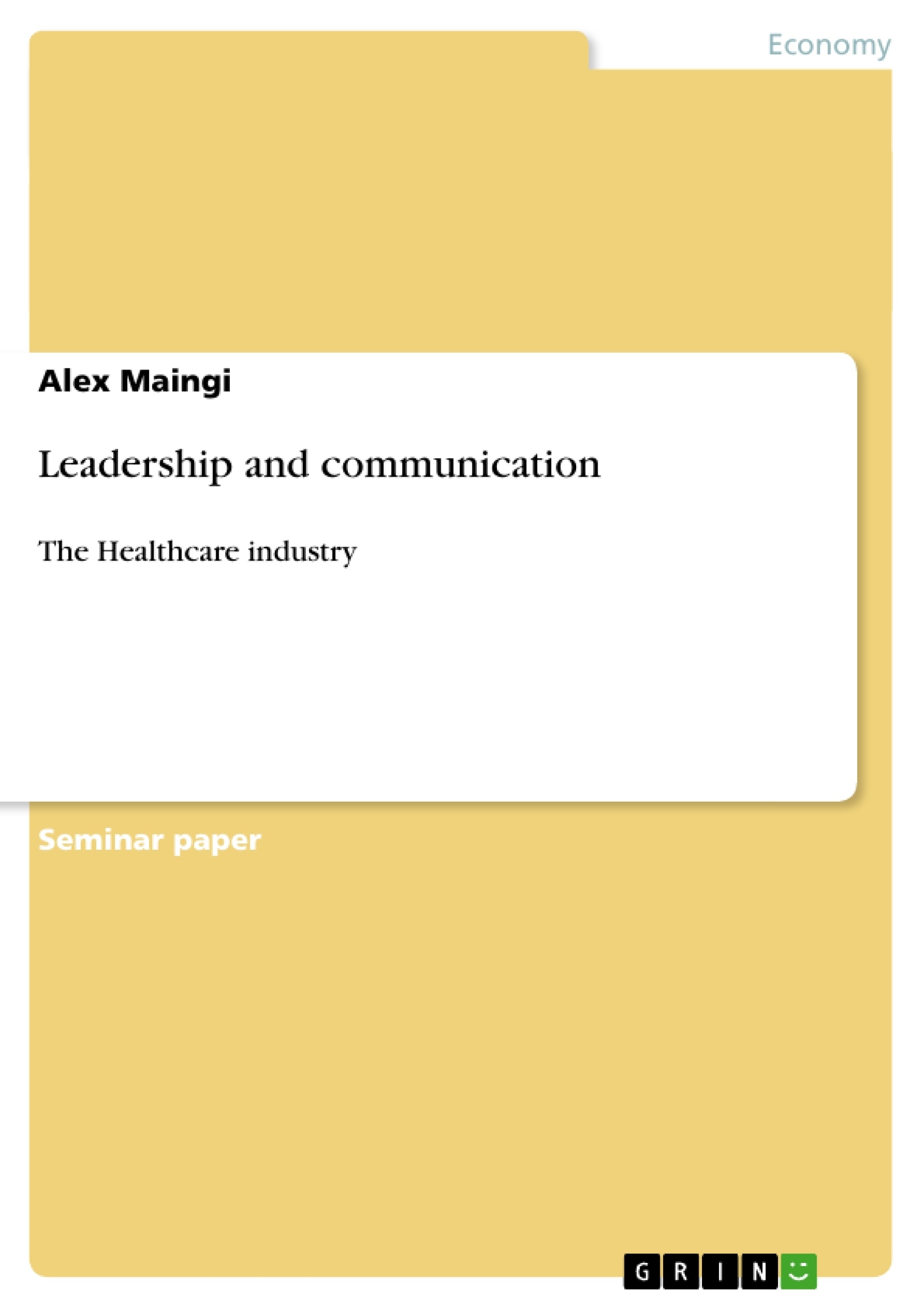At the moment, in healthcare industry it is common for many hospitals and other healthcare providers to suffer from poor communication among its nursing staff and management which has a direct impact on staff morale and healthcare provision. This is attributed to poor communication skills from management. Good communication is needed so that employee commitment and productivity is enhanced. Successful managers must not view themselves as only bosses, but as performance role models. Effective communication will enhance a culture where employees will openly voice out their views in building the organization. In this paper I am going to look at how leaders in a healthcare organization can communicate effectively so that staff, and particularly the nursing staff is developed and the healthcare organization is transformed to higher productivity.
Inhaltsverzeichnis (Table of Contents)
- Introduction
- Effects of Good Communication in an organization
- Benefits of effective Communication
- How leaders can communicate effectively to develop staff and transform an organization
- Encourage Feedback
Zielsetzung und Themenschwerpunkte (Objectives and Key Themes)
This paper examines how effective communication can enhance leadership in the healthcare industry. The author explores the positive effects of good communication on employee morale, productivity, and overall organizational performance. The paper emphasizes the importance of creating an open and supportive communication environment to foster employee development and organizational transformation.
- The importance of effective communication in healthcare leadership.
- The impact of communication on employee motivation, teamwork, and productivity.
- Strategies for leaders to encourage feedback and create a communication-rich environment.
- The benefits of diverse communication channels and the role of technology in healthcare organizations.
- The relationship between leadership, communication, and organizational transformation.
Zusammenfassung der Kapitel (Chapter Summaries)
The introduction establishes the problem of poor communication in healthcare settings and its negative consequences. It highlights the need for effective communication from leaders to foster employee commitment and productivity.
The second section explores the positive effects of good communication in an organization. It discusses how effective communication can motivate employees, promote teamwork, and encourage innovation. The section draws upon various sources to highlight the importance of open communication channels and the creation of a culture of mutual respect.
The third chapter delves into the specific benefits of effective communication in healthcare organizations. It emphasizes the importance of diverse communication pathways, regular reviews, and the use of technology. The section also emphasizes the role of active listening in fostering effective communication.
The final chapter focuses on practical strategies for leaders to communicate effectively to develop staff and transform an organization. It outlines the importance of encouraging feedback, fostering a culture of open communication, and being attentive to both verbal and nonverbal cues.
Schlüsselwörter (Keywords)
This paper focuses on leadership, communication, healthcare, organizational development, employee motivation, feedback, and communication channels.
Frequently Asked Questions
Why is effective communication vital in healthcare organizations?
Poor communication between nursing staff and management directly impacts staff morale and the quality of healthcare provision. Good communication enhances employee commitment and productivity.
How should healthcare managers view their leadership role?
Successful managers should not see themselves merely as bosses, but as performance role models who foster a culture where employees feel safe to voice their views.
What are the benefits of promoting teamwork through communication?
Effective communication motivates employees, promotes innovation, and builds a culture of mutual respect, which ultimately transforms the organization to higher productivity.
How can leaders encourage better feedback from staff?
Leaders can encourage feedback by being attentive to verbal and nonverbal cues, creating open communication channels, and establishing regular review processes.
What is the link between communication and staff development?
By communicating effectively, leaders can identify development needs, support nursing staff growth, and ensure that the workforce is aligned with organizational goals.
- Quote paper
- Alex Maingi (Author), 2010, Leadership and communication, Munich, GRIN Verlag, https://www.grin.com/document/269962



